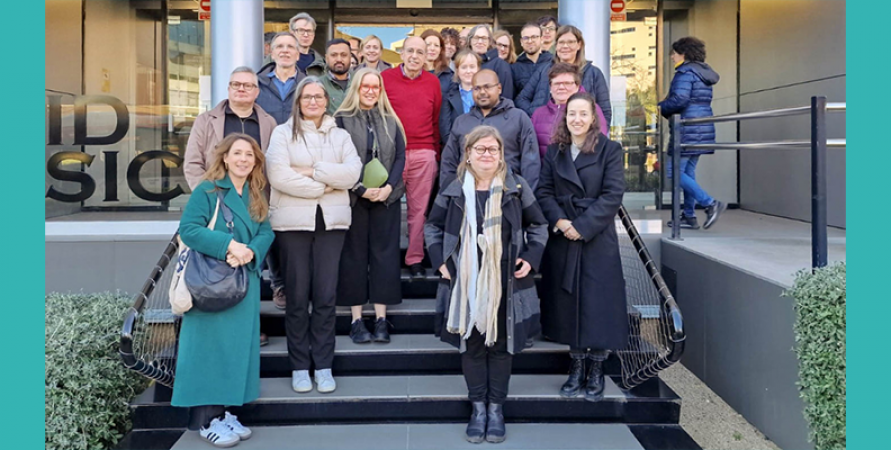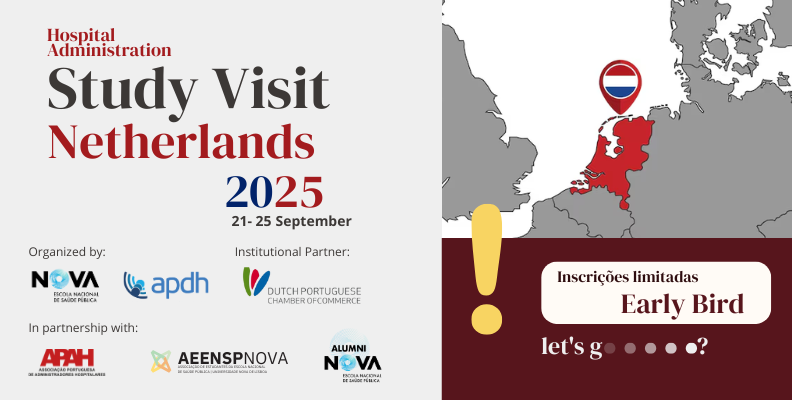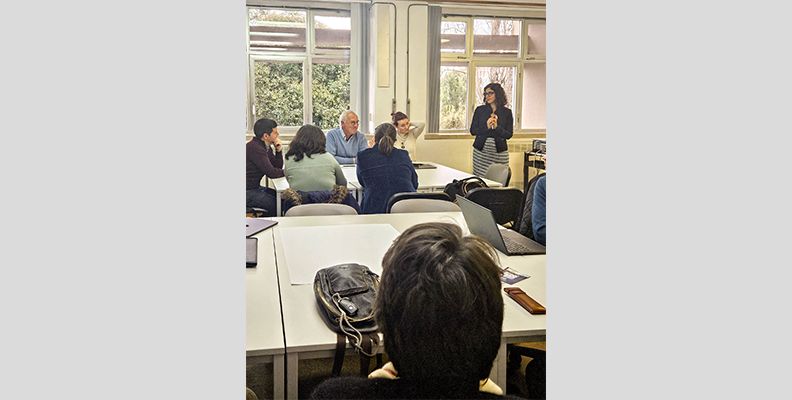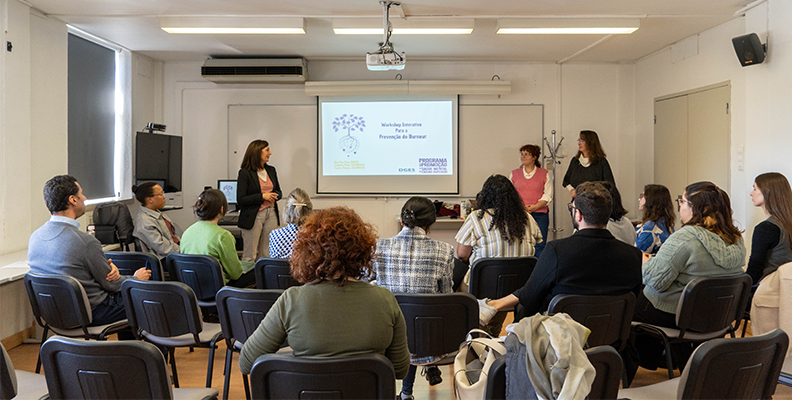The NOVA National School of Public Health (NOVA NSPH), which is part of the NEMESIS consortium (Novel Effect biomarkers for MEtabolic disruptors: Evidence on health Impacts to science and policy NeedS) and leads the Work Package on Risk Assessment and Communication, was represented by Carla Martins, Cristina Godinho and Maria Diniz da Costa at the project’s annual meeting, which brought together the consortium partners in Barcelona to discuss the project’s progress and align the next steps.
During the meeting, which took place on 29 and 30 January, the work carried out by the various partners was presented, highlighting the efforts to generate robust scientific evidence on the health effects of endocrine disruptors. This European project also aims to fill gaps in risk assessment methodologies applicable to aggregate and combined exposure to various endocrine disruptors.
The participation of the NOVA NSPH team was essential to ensure that the expected results will have an impact not only on the production of scientific knowledge, but also on the provision of information to support new (and better) European policies in the area of environmental health.
This international research project aims to investigate the effect of exposure to chemicals present in the environment, food and consumer products on the human endocrine system. In recent years, growing concern about the harmful effects of chemicals present in different contexts of our personal and professional lives (e.g. food, cosmetics, detergents, kitchen utensils, food packaging and many others) has accelerated research into this subject.
In the particular case of chemicals that act as endocrine disruptors (EDs) – substances that are exogenous to the human body and interfere with the synthesis, secretion, transport, metabolism or elimination of different hormones – only recently has the ability of some chemicals to have these effects been proven and exposure has been linked, for example, to increased obesity, fatty liver and insulin tolerance.
The EU is keen to fund research into this topic, so that citizens can be protected by the development of policies based on solid scientific evidence.



